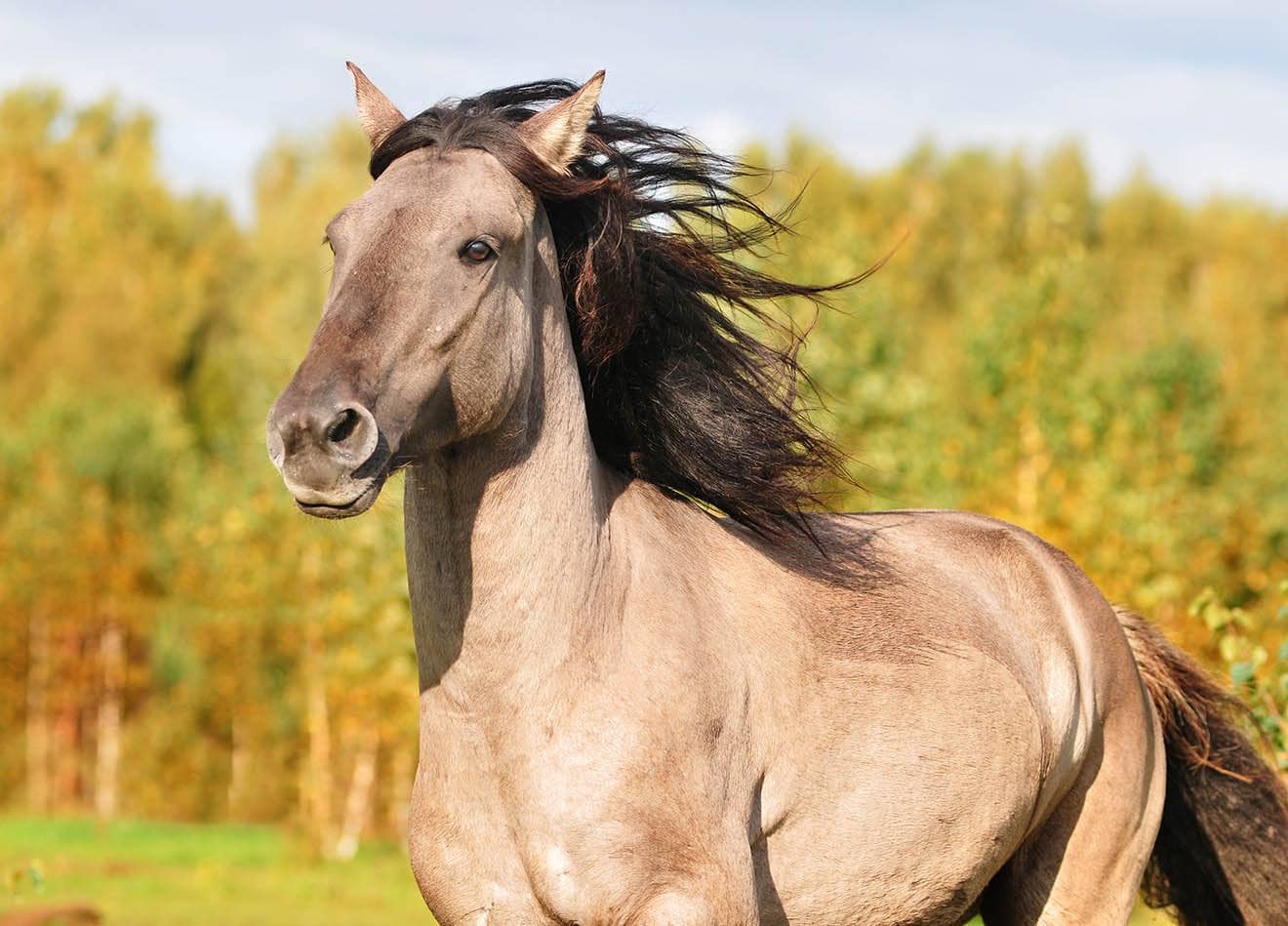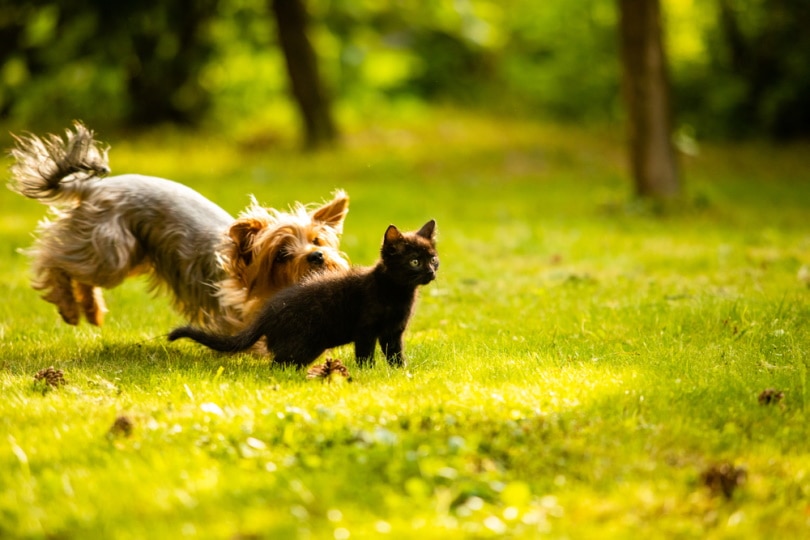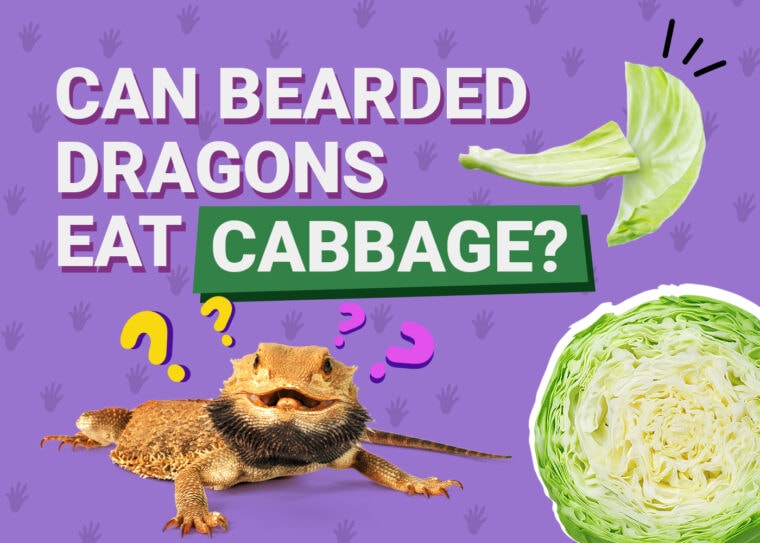
Cabbage is a healthy vegetable packed with beneficial vitamins and minerals and is a great addition to a healthy, well-rounded diet—for humans, anyway. If you enjoy cabbage and usually have it around in your kitchen, you may be wondering if the same health benefits can be gained by your Bearded Dragon.
So, can Bearded Dragons eat cabbage? Is cabbage safe for these reptiles? Yes, in moderation, cabbage is a great addition to your lizard’s diet and is non-toxic to these reptiles. Of course, not all foods that are healthy for humans are fit for our pets, and there are potential concerns about giving cabbage to your Dragon.
In this article, we weigh the potential benefits and concerns and see if cabbage is a vegetable worth adding to your lizard’s diet. Let’s dive in!

Potential Benefits of Feeding Cabbage to Your Bearded Dragon
Not only is cabbage safe for Bearded Dragons, but it also has a host of nutritional benefits for them, making it a great vegetable to add to your lizard’s diet. Four types of cabbage are primarily used: red, green, Savoy, and napa. Each has its own unique nutritional composition and benefits.
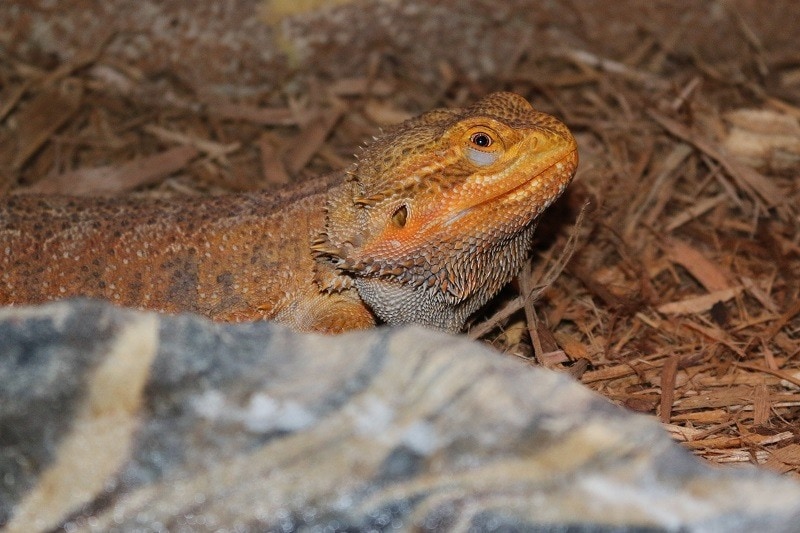
Red Cabbage
Among the four main cabbage varieties, red cabbage is the most nutritious and best option to feed your reptile. It’s low in sugar and low in fat, and it has loads of fiber to promote healthy digestion. It is also high in vitamin C for immune health, vitamin K for healthy blood and tissue, and vitamin A for vision health, as well as potassium, manganese, and magnesium.
Green Cabbage

Green cabbage is a safe and healthy option for your lizard and is packed with beneficial nutrients, albeit slightly less than red cabbage. It is also low in sugar and fats, high in fiber, and high in vitamin C. It should be noted that while all cabbage varieties contain goitrogens, which are known to interfere with proper thyroid function in large amounts, green cabbage contains the highest amount, so it should only be given sparingly.
Savoy Cabbage
Savoy cabbage is similar in appearance to green cabbage but has wrinkly leaves and is milder in flavor. Savoy contains higher amounts of both fiber and protein than green cabbage but has less vitamin C and K. Savoy is fairly acidic and may cause gastric upset in Dragons in high amounts. It also has high amounts of vitamin A, which can put Dragons at risk for vitamin A toxicity if they are already on vitamin A supplements. While small amounts of Savoy cabbage are fine, red cabbage is a far better option.
Napa Cabbage
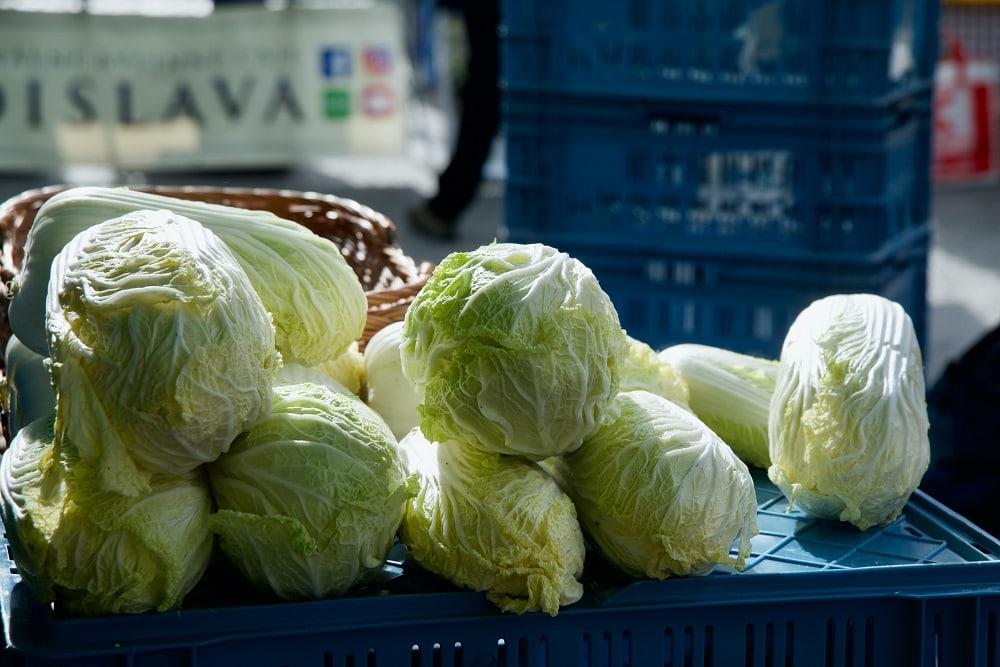
Also known as Chinese cabbage, napa cabbage has thinner, more lettuce-like leaves than the other varieties, along with a sweeter taste and milder flavor. In addition, Napa has essential vitamins like vitamins A, C, and K, as well as high amounts of fiber and calcium. It is great to give your lizard in moderation, but it does contain fairly high amounts of goitrogens and should be given sparingly.
All four varieties of cabbage contain high amounts of water and loads of fiber and antioxidants and are low in sugar, making cabbage a healthy and safe snack to feed your Dragon.

Potential Risks of Feeding Cabbage to Your Bearded Dragon
Even with all the benefits that cabbage can potentially give your lizard, there are risks to be aware of too. First, cabbage needs to be cut up into small pieces, as it is slippery and presents a potential choking hazard for your lizard, especially younger Dragons. Additionally, while cabbage contains fiber, which is essential for healthy digestion, too much can cause problems like diarrhea, which may lead to more serious issues, such as dehydration.
As most Bearded Dragon owners know, these reptiles need to consume more calcium than phosphorus in their daily diet. Phosphorus binds with calcium, making any calcium unavailable for your Dragon to use. The long-term effects of calcium shortage can be devastating and result in bone disease. Different types of cabbage, namely Savoy cabbage, have more phosphorus than calcium, making it unsafe for Dragons in large amounts. No matter the type of cabbage that you decide to give your Dragon, though, calcium supplementation is essential.
Lastly, be sure to wash any cabbage that you give to your Dragon thoroughly.

How to Feed Cabbage to Your Bearded Dragon
Try to find the best quality cabbage that you can, and make sure it is clean and free from mold or pests. The cabbage should be fed raw and cut up into bite-sized pieces that your Dragon can easily chew on without potentially choking. Stick to the sweet, outer edges of the leaves, and avoid the stalks. You can even mix the cabbage into your lizard’s regular food.
Give them a small piece at first, and then wait a day or two to make sure they don’t have any reactions. If all is well and your Dragon enjoys it, you can give them a small piece once or twice per week. While giving them more is probably fine, it’s best to stick to smaller amounts just to be safe.

Final Thoughts
Cabbage is a safe and healthy treat to feed to your Bearded Dragon in moderation. While this vegetable has a host of nutritional benefits, too much cabbage can cause digestive issues, and certain varieties, like Savoy cabbage, have higher amounts of phosphorus than calcium, making it best to avoid entirely. If you want to give your Dragon a cabbage snack, we highly recommend red cabbage, and you should only give them a few small pieces once or twice a week.
Featured Image Credit: Pixabay

